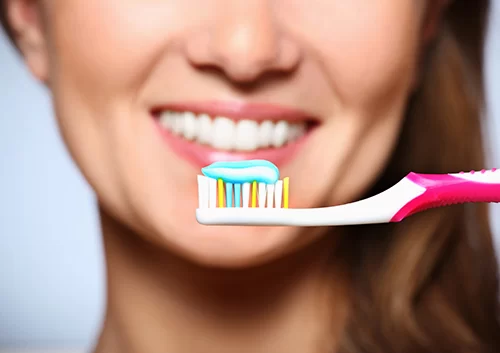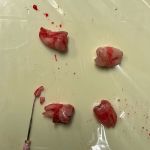
- understanding-gum-disease-and-mouthwash-choice
- how-does-mouthwash-help-in-healing-gum-disease
- types-of-mouthwash-for-gum-disease-recovery
- real-experiences-and-popular-cases-in-mouthwash-use
- what-experts-say-about-healing-gum-disease
- choose-the-right-product-with-dentistry-toothtruth
1. Understanding Gum Disease and Mouthwash Choice
1.1. What Makes Gum Disease So Common?
Gum disease is one of those oral health issues that creeps up quietly but can have major consequences if ignored. Many adults have faced bleeding gums or sensitivity at some point. The cause? Usually a combination of plaque, bacteria, and sometimes genetics. Knowing what you’re up against is key when searching for the best mouthwash for healing gum disease.
1.2. Why Mouthwash Matters for Gum Health
For years, mouthwash was mostly seen as a way to freshen breath. But today, science-backed formulas can fight bacteria, reduce inflammation, and even help heal gums. If you’re battling gum disease, the right mouthwash isn’t a luxury—it’s an essential part of your daily care routine.
2. How Does Mouthwash Help in Healing Gum Disease?
2.1. Antibacterial Power: Breaking Down Plaque and Bacteria
The best mouthwash for gum disease does more than mask bad breath. Ingredients like chlorhexidine, cetylpyridinium chloride, or essential oils can break down plaque, kill harmful bacteria, and give your gums a chance to heal. Realistically, no mouthwash alone can fix advanced gum disease, but it’s a powerful tool for managing early to moderate cases.
2.2. Reducing Inflammation and Soreness
Some mouthwashes have anti-inflammatory ingredients such as aloe vera, tea tree oil, or even certain prescription-strength agents. These formulas can help soothe sore gums and reduce swelling. I remember a patient who swore by her aloe vera rinse during a tough recovery from gingivitis—sometimes natural options can make a real difference.
2.3. Supporting Healing While Preventing Recurrence
A key part of healing gum disease is stopping it from coming back. A quality mouthwash can provide ongoing protection, especially when used with regular brushing and flossing.
3. Types of Mouthwash for Gum Disease Recovery
3.1. Prescription vs. Over-the-Counter: What’s the Difference?
Not all mouthwashes are created equal. Prescription mouthwashes, often containing chlorhexidine, are extremely effective for severe gum disease but should be used under dental supervision due to possible side effects like staining. Over-the-counter options—think Listerine or those with essential oils—are better for daily prevention and mild cases.
3.2. Natural Mouthwash for Gum Disease: Do They Work?
Interest in natural remedies is skyrocketing. Mouthwashes with ingredients like tea tree oil, aloe vera, or even saltwater are gaining fans. While not as potent as prescription products, many users report improvements in gum health and less irritation.
3.3. Tailoring Your Choice to Your Unique Needs
When considering the best mouthwash for healing gum disease, think about your specific situation: Are you sensitive to alcohol? Do you want something natural? Consulting with a dental professional is wise, but learning from real-world reviews can help you avoid wasted time and money.
4. Real Experiences and Popular Cases in Mouthwash Use
4.1. Stories from People Who Beat Gum Disease with Mouthwash
Online forums and communities are filled with people sharing their journeys. For example, one user posted about overcoming bleeding gums with a combination of professional cleaning and a chlorhexidine rinse. Another popular case involved switching from a regular to an alcohol-free mouthwash and finally seeing reduced gum irritation. It’s these real experiences that help others find hope and practical advice.
4.2. The Role of Consistency in Results
A recurring theme in these stories: consistency is everything. A friend once told me she didn’t see results until she made mouthwash a non-negotiable part of her morning and evening routine. Like any health habit, the benefits grow over time.
4.3. When Mouthwash Isn’t Enough
It’s important to remember that mouthwash is a helper, not a cure-all. If you’re facing persistent symptoms or pain, professional dental care is a must. The best mouthwash for healing gum disease can only do so much if there are underlying issues.
5. What Experts Say About Healing Gum Disease
5.1. Dentist Recommendations and Clinical Studies
Dental professionals typically suggest mouthwash as part of a larger plan: brushing, flossing, and sometimes professional treatments. Clinical studies consistently show that mouthwash can reduce plaque and inflammation, especially in early gum disease. But experts warn against relying solely on any single product.
5.2. Potential Pitfalls: What to Avoid
Overusing mouthwash, especially those with alcohol, can cause dry mouth or irritation. Always read the label and consider your own sensitivities. And beware of online trends that aren’t backed by evidence—sometimes “natural” doesn’t mean “better” for everyone.
5.3. Personalized Care: There’s No One-Size-Fits-All
Everyone’s gums and health history are different. What works for one person may not work for another, so seeking tailored advice is the smartest move. Many experts recommend starting with proven products and tracking your progress.
6. Choose the Right Product with Dentistry Toothtruth
6.1. Trusted Reviews and Professional Guidance
If you’re searching for the best mouthwash for healing gum disease, Dentistry Toothtruth offers reviews, comparisons, and expert recommendations. This is the place to find out which products really work and suit your needs—whether you’re looking for prescription solutions, over-the-counter favorites, or the latest natural mouthwash innovations.
6.2. Supporting Your Gum Health Journey
At Dentistry Toothtruth, you can discover helpful guides, community stories, and product suggestions tailored to different stages of gum disease recovery. Remember, a healthy smile is worth investing in, and with the right support, healing is absolutely possible.







 LAX DENTAL and ORTHODONTICS4.0 (107 review)
LAX DENTAL and ORTHODONTICS4.0 (107 review) Minnesota Orthodontics - Chanhassen5.0 (27 review)
Minnesota Orthodontics - Chanhassen5.0 (27 review) McCabe Orthodontics4.0 (14 review)
McCabe Orthodontics4.0 (14 review) Andrew Hoffman, DMD5.0 (160 review)
Andrew Hoffman, DMD5.0 (160 review) Smile Again Dental Implant Center5.0 (132 review)
Smile Again Dental Implant Center5.0 (132 review) Holden Barry L DMD, PC4.0 (10 review)
Holden Barry L DMD, PC4.0 (10 review) The Importance of Oral Health Education During Pregnancy for a Healthy Pregnancy
The Importance of Oral Health Education During Pregnancy for a Healthy Pregnancy Best Tips for Brushing Your Teeth Properly for Healthy Gums: Essential Techniques for Oral Health
Best Tips for Brushing Your Teeth Properly for Healthy Gums: Essential Techniques for Oral Health Why Skipping Dental Checkups Can Lead to Bigger Oral Health Problems
Why Skipping Dental Checkups Can Lead to Bigger Oral Health Problems Advantages of Porcelain Dental Restorations
Advantages of Porcelain Dental Restorations How Can Diabetes Cause Tooth and Gum Problems? Preventing and Managing Oral Health Issues
How Can Diabetes Cause Tooth and Gum Problems? Preventing and Managing Oral Health Issues Healthy Habits for Promoting Good Oral Health and Hygiene: Tips for a Healthy Smile
Healthy Habits for Promoting Good Oral Health and Hygiene: Tips for a Healthy Smile